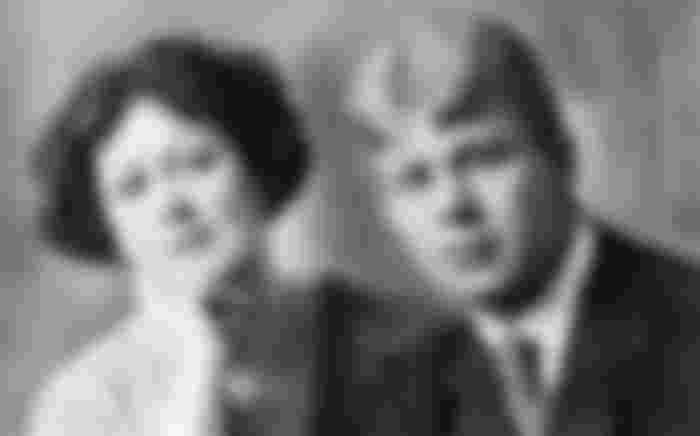One of the best and most beloved poet of Russia, whose verses are read in the universe, who is himself considered the last poet of the village , Sergei Yesenin , born on October 3, 1895 year in the village of Constantine. In the next 40 years, he is the artistic and private life which is hard to find unrivaled in world literature, and who ended up triple suicide of 28 December 1925 , the All my life has been a sensitive and caring towards family, disappointed in those in whose hands was the power of Russia, always loyal to friends, women and drink, and above all he was an eternal dreamer, which is perhaps best evoked by the words he wrote himself:
Who I am, what I am, I'm just a dreamer,
whose gaze fades, in fog and mist,
I lived by the way, like I dreamed,
like many others, on that earth.
He spent his childhood in a poor peasant homeland with his parents and sisters, and he always carried those first happy days of his stay with him and dedicated many of his verses to them. He began writing early and, after graduating from high school, in 1912, following dreams of success and a desire to make life easier for his parents, he went to Moscow where he intended to enter the Pedagogical Institute, and soon took a job as a lecturer.
Already during those first years of his stay in Moscow, he had problems with the authorities , which can be learned from letters sent to a friend to whom he writes that they are following him and that the police are opening letters to him. Although he encountered a difficult literary atmosphere in the Russian capital, his dreams soon began to come true and his poems began to appear in the newspapers Dobro jutro and Dječji svijet . in 1915 he went to St. Petersburg, where there was an apathetic atmosphere on the eve of the First World War. Bringing with him a soul full of folk motifs and all the simplicity of the Russian countryside, he was very quickly accepted into literary circles, and the people considered him their messenger.
From 1914 to 1916 he prepared his first two collections, Radunjica and Plavetnilo , which represent his entire work until the revolution. In both collections, all the songs are related to the vastness of the village , abound in folk heroes and in them flare the colors of the homeland. His next collection is Confession of a Mangup , which was created under the influence of A. Blok and abounds in symbolist features. After that, Jesenjin became one of the initiators of imaginism, the style in which he wrote his only prose work, Bobij and Druškan.
Yesenin spent his days in Moscow and St. Petersburg bohemian : he traveled with other imaginists to promote the direction, the authorities did not tolerate them because of the scandals they caused, they organized literary evenings and, moving in such circles, Yesenin indulged in alcohol. He was more and more bitter and frustrated by the misery of life, always believing in a better tomorrow that he had never experienced. During this period, Ana Snjegina was created , his most realistic literary achievement, and the collection Krčmarska Moskva, which the authorities welcomed with open arms , accusing Jesenjin of showing doubts about the revolution in his poems. Yet, even when he was most aggressive, he did not want to give up his dreams and his verses.
Women played an important role in Yesenin's life. He always brought with him countless loves and adventures. In 1917 he married actress Zinaida Raikh with whom he had two children, but that bohemian marriage fell apart in 1921. His next wife was the dance icon Isidora Duncan, with whom the marriage also infamously failed after only a year due to the turbulent characters of both artists. He married for the third time the grandson of Leo Tolstoy, Sophia, with whom he had been married for only seven months. Just before his wedding to Sofia, he was in a dubious relationship with his literary secretary Galina Benislavska, who had been in love with him for years. In the days of the poet's loneliness and fatigue, she was his greatest support, and her name is most often mentioned next to his. Galina ended her life by committing suicide at the grave of a man she had loved all her life and whose death she could not get over, and she was buried next to him.

Although it has long been thought that Jesenjin committed triple suicide in a hotel room, having written the verses of the song Goodbye, Dear, Goodbye , with his own blood just before that , in recent years it is increasingly believed that he was killed. Sergei's letters reveal that 26 of his friends were executed, and the fact that his friend Wolf Ehrlich, to whom the song was allegedly dedicated, was a secret spy came to light. Shortly after his death, under strange circumstances, all those who took part in the investigation left the world, and it is rightly believed that the authorities staged his suicide.
Writing intelligibly to all, with the voice of his heart, sincerely and cruelly, using themes full of hope for a better tomorrow that his contemporaries wanted to see at least on paper, he entered the depths of the souls of all who read it. He corrected his life, as well as the lives of his contemporaries, full of misfortunes and deceptions, in his dreams. For man dreams as bright a light as the dark night around him. He was, without a doubt, one of the greatest poets of this world, whose songs will live on forever.

One of the most beloved writers.